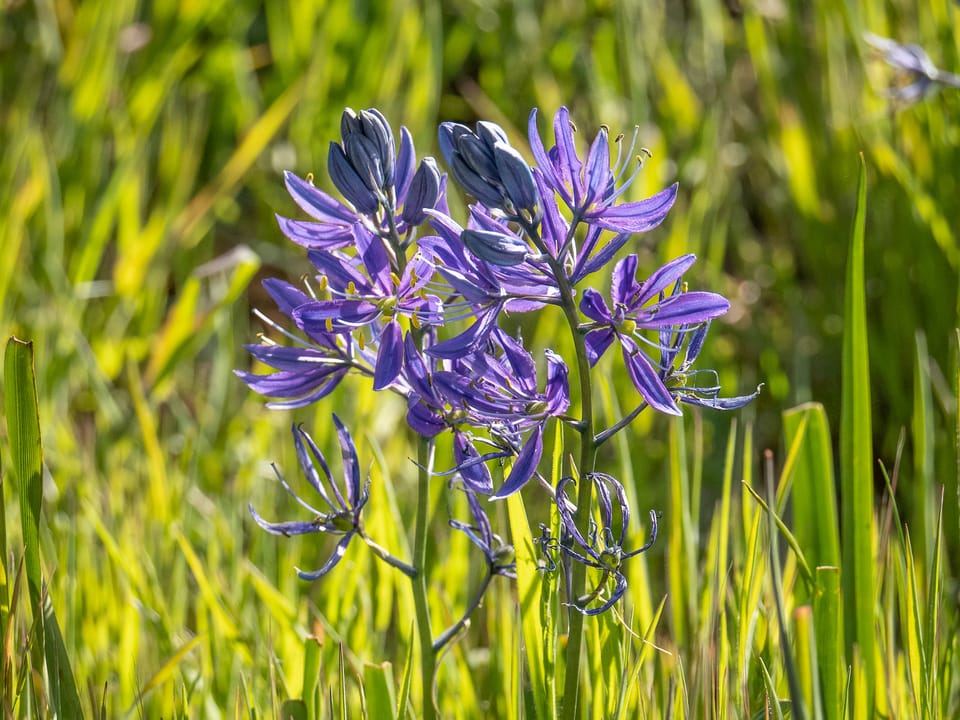EcoWest News, May 3, 2022

Welcome to EcoWest News, a weekly round-up of news and resources that you can put to use in addressing environmental issues and protecting the wild in your community.
Introducing . . . Bridging the Gap
Bridging the Gap Winnipeg delivers field trips, support for school gardens, and in-class programs to grade 4 classes in low-income neighbourhoods. Programs address specific learning outcomes in the Manitoba Science and Social Studies curriculum and incorporate traditional Indigenous knowledge. The website provides various curriculum resources that may be of general interest.
Across the West
Legal Rights for the Salish Sea is working to establish legal rights for the Southern Resident Orcas.
BC’s First Nations Leadership Council has released the BC First Nations Climate Strategy. [Peace Arch News]
Wetland restoration work in the Creston valley will benefit farmers and endangered Northern Leopard Frogs. [The Golden Star]
Sea life is returning to BC coasts after last summer’s heat dome, but what if it is equally hot this year? [CBC British Columbia]
With hundreds of cougars in BC’s Fraser Valley, it’s worth remembering that most of them keep their distance and don’t want anything to do with humans. [Fraser Valley Current]
Environmental groups are concerned by the amount of energy consumed by bitcoin mining, especially in places like Medicine Hat where most of the electricity is produced by fossil fuels. [CBC]
One million people live next door to oil refineries on Edmonton’s outskirts. The refineries pump out toxic chemicals, but very little is known about their impact. [The Narwhal]
Lumsden, SK, is planning for the future with solar power and an environmentally-friendly wastewater treatment facility. [CBC Saskatchewan]
Books, Websites, and Documentaries
The Vancouver Island Butterflies website displays topside and underside views of 46/60 Vancouver Island butterflies along with size and best months for viewing.
“We are literally flushing our forests down the toilet through toilet paper, and in so doing, flushing the futures of our children with it” – Michael Zelniker, The Issue with Tissue, A Boreal Love Story [Montreal Gazette]
Two Indigenous documentary filmmakers are premiering films on the consequences of hydro power in BC next month. [The Tyee]
In Our Backyard: Keeyask and the Legacy of Hydroelectric Development by Aimee Craft and Jill Blakley tells the story of the Keeyask dam and accompanying development on the Nelson River from the perspective of Indigenous peoples, academics, scientists, and regulators.
Nature Manitoba has published Tiger Beetles of Manitoba: Ecology, Life History and Microsculpture by Robert E. Wrigley, Larry de March, and Erwin Huebner. The book features 80 images alongside micro images, cartoons, and an original painting.
Around the World
Rethinking clothing – waste as a reusable resource (e.g. coffee grounds) and demanding products with minimal impacts. [Sprudge] Plus recyclable running shoes, repair & rewear, trees not t-shirts, and renting reusable race cups. [Trail Runner]
The European Union is proposing a ban on entire classes of toxic chemicals in order to prevent substitutions, which may be equally toxic. [The Guardian]
Southwestern U.S. cities such as San Diego, Phoenix, and Las Vegas are using a multi-pronged approach to conserving and sourcing water, providing these metropolitan areas with sufficient water supplies to support their growing populations. [Yale Environment 360]
DIY
Spring and crow parents are anxiously protecting their young from harm: tips to avoid getting dive-bombed. [The Urban Nature Enthusiast]
Something to keep in mind if it’s hot and dry this summer – lawn watering accounts for 30-70% of individuals’ water usage. [Gizmodo]
Just because a plastic item can be recycled doesn’t mean it’s always technically possible for the average person to do so. #1 plastics are easily recyclable; #2, #4, and #5 sometimes; and #3 and #7 are the least likely to be recycled. [Gizmodo]
Photo credit: https://www.flickr.com/photos/apmckinlay/52044399665/
EcoFriendly West informs and encourages initiatives that support Western Canada’s natural environment. Like us on Facebook, follow us on Twitter, or subscribe by email.

Member discussion